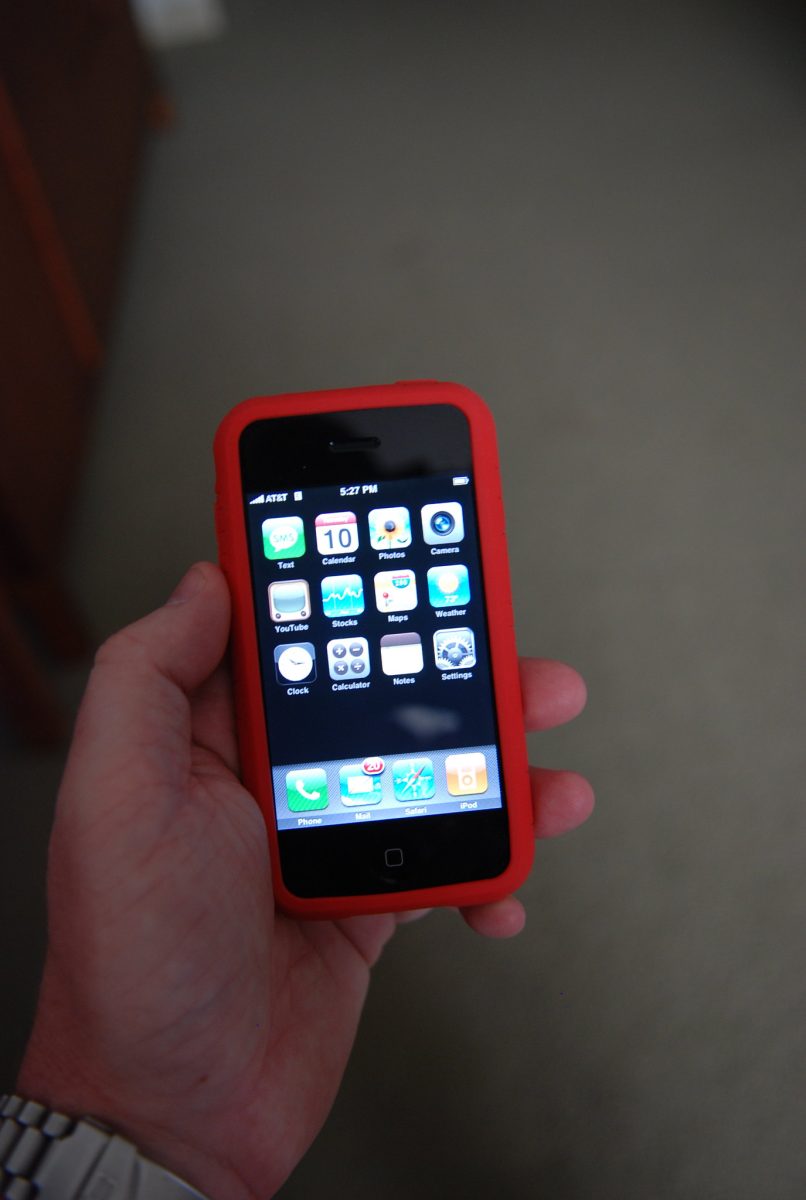The first time I stumbled upon the word “iGen,” I must have been in seventh or eighth grade. My mother had recently explained that each generation was given a name as a way to understand its character. Since I was thirteen, I’d immediately thought about my generation, and I’d asked her what we were called. She didn’t know. I was “Something After Millennials.”
Sometime in the next few months, I looked it up on a school desktop. “Generation Z,” proclaimed the Internet. I wasn’t very satisfied. “Generation Z” didn’t tell me anything about myself, and it definitely didn’t sound as cool as “Millennial.” I scrolled and searched for an alternative label, one I could wear more proudly. My eyes landed on “iGen.”
I was bothered right away, although I couldn’t explain why. I had grown up with technology all my life, hadn’t I? It seemed only fitting for someone to call us “iGen.” Certainly no one was more iGen than my generation. That day I decided I was content with the new name.
The instant I told someone what we were called, the instant I said “iGen” out loud, I realized I wasn’t content at all. I was angry. I started to understand why, too. Adults always told me that I was one of the unlucky kids these days, destined for failure, hypnotized by the glowing blue light in my palms. That’s what they told me, over and over. And now the adults were summing us up, trying to convey the essence of growing up in the twenty-first century, borrowing trademarked Apple branding from “iPhone” or “iPad” to show what they thought of us. They were insisting they knew who we were before we, as adolescents, even knew.
“Generation Z” started to sound much better. “iGen” told me I was no better than the iMac I’d used to search for my generation’s name.
Yes, I was angry, but I was also curious. After a few Google searches I found Jean Twenge, a psychologist and the author of a book called iGen. I couldn’t believe it. Someone had written three hundred and fifty two pages about us, and the word “iGen” was on the cover. Not only that — the second half of the title said my generation was “completely unprepared for adulthood.” I wondered then and I wonder now: why are adults so convinced that our brains are slowing down like old iPhones?
Adults say my generation lacks life experiences because everything is accessible with a click or a tap. Our phones can bring food to our doors, get us a ride home, and find information from all over the world. Older generations worry that technology is making Gen Z less independent.
Is it? Instead, technology seems to be mobilizing our self-expression. When adults tell me about kids these days, I’ll say I agree. Just look at kids these days if you want proof our devices won’t make us less independent, less creative, or less proactive. Look at how social media and the Web help millions of kids to share their music and art, organize school walk-outs and worldwide climate change protests, and raise awareness for causes like childhood cancer. Our conviction isn’t written in zeroes and ones, regardless of what the “i” in “iGen” suggests. Rather, the technology we get to use speaks with the voice we already have.
“i” stood for Internet back when Steve Jobs built his first i-gadgets; as a generation label it says his products built us too. The “i” that supposedly defines us tells us we are nothing but hopeless consumers, feeding the jangling pockets of inventors, programmers, and designers. Yes, addiction to technology is real and measurable, but are we really the only addicts? Every day I ride the D.C. Metro home from school, and every day I scan the rows of pink and beige and blue plastic seats for people not absorbed in smartphones. If I’m lucky, I’ll find two or three in the entire car. Everyone else in that busy train, from Boomers to Millennials to Gen Z, are completely hooked. In a sense, the app developers have made everyone into iGen — technology use is not unique to Gen Z at all.
To be fair, my generation is much more comfortable navigating the latest MacBook than our grandparents are. But young people have always adjusted more quickly to new technology. When Guglielmo Marconi invented the radio, he changed the face of communication. We wouldn’t even have the Internet if he hadn’t given us the idea of broadcasting and collecting information from a faraway source. Yet my great-grandmother’s generation, growing up in a smaller world than had ever existed before, is not called Radio-Gen. They are the Greatest Generation or the G.I. Generation, known for the actions that helped win the Second World War. They are recognized for something much bigger than the technology in their lives: the work they did, the action they took.
Like all generations, we deserve a label that reflects either the people we become or the culture behind the becoming. If that culture can’t be expressed without mentioning technology, then go ahead and mention technology. But technology is not Gen Z’s only marker. We don’t deserve to be branded as if we were spit out of an Apple conveyor belt. We’re still young, and in the coming years we will show our character. We will prove we are more than “iGen.” In fact, we already do.


































































Nadim • Nov 2, 2019 at 2:44 am
ok zoomer